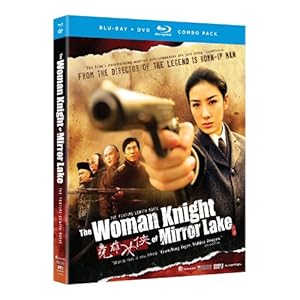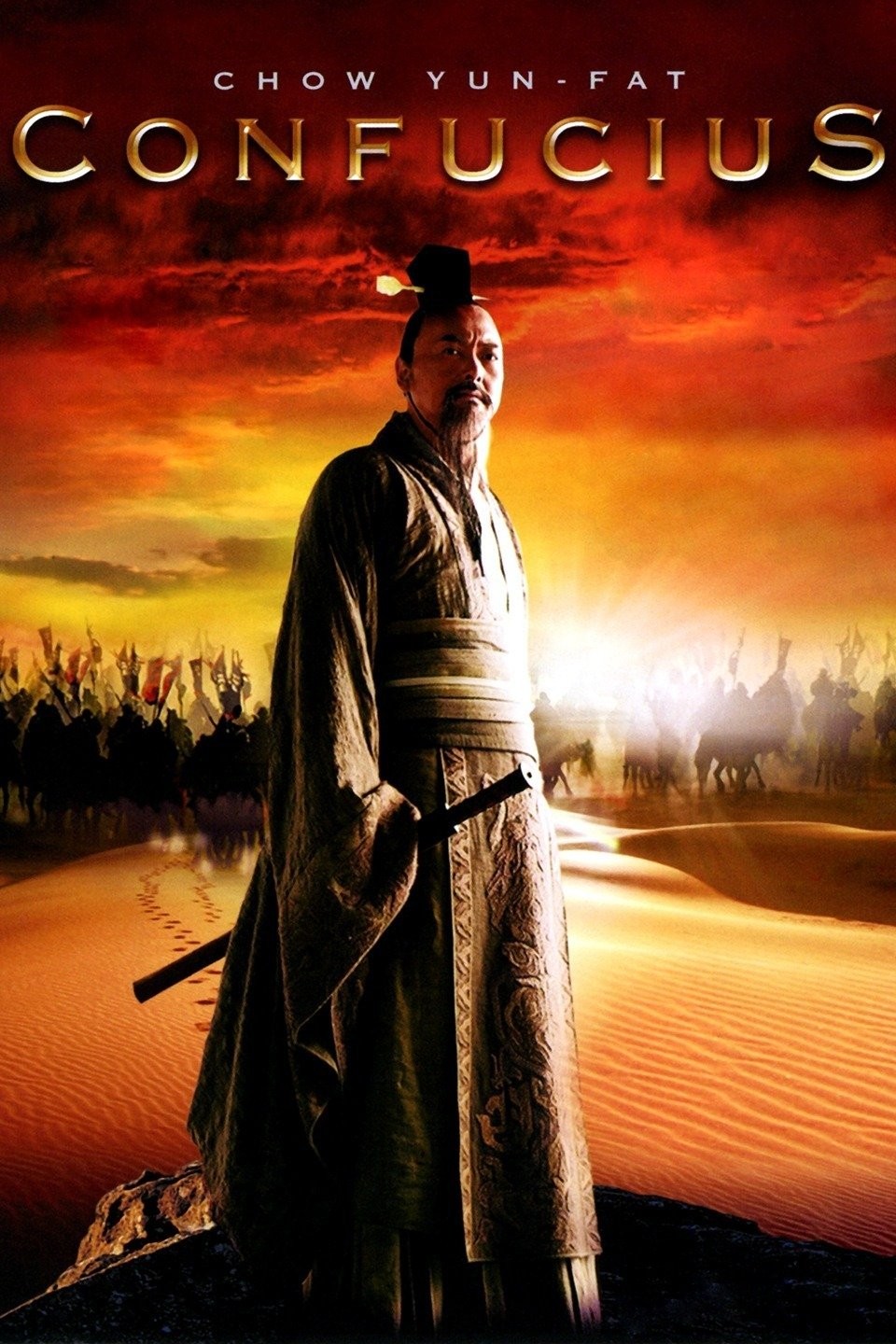
(On May 26, 2009, Magnolia Home Entertainment released a Wayne Wang 2-disc double-feature DVD containing the films A THOUSAND YEARS OF GOOD PRAYERS and THE PRINCESS OF NEBRASKA. Both were also available in separate editions. )
I'm not going to make a lame joke about how watching A THOUSAND YEARS OF GOOD PRAYERS (2007) really feels like it takes a thousand years, because chances are it's already been done by now. But it really does. Although this isn't a bad movie, you may find yourself nodding off between the parts in which something actually happens.
The thing is, director Wayne Wang, who gave us 1993's THE JOY LUCK CLUB, seems to want this movie to be intensely boring since he has deliberately made it as slow-paced as spending a long Sunday afternoon watching sea monkeys expire. If an oncoming glacier had popped up in the final reel, it would've qualified as a thrilling action finale by comparison.
Now that I've given you an idea of what to expect in that regard, let's explore the other aspects of the film. The plot concerns an old-fashioned Chinese father from Beijing, Mr. Shi (Henry O), visiting his more modern daughter Yilan (Feihong Yu) in America. Mr. Shi worries that Yilan will never find a suitable husband and be happy after her unsuccessful first marriage. Yilan bristles at his very presence and begins to spend evenings away from the apartment, leaving him alone for long periods of time. When they do find themselves together, mainly at dinner, she's sullen and uncommunicative. Obviously she's troubled by some deep, unspoken resentment.
Mr. Shi wanders around while Yilan's at work, conversing with strangers about how he used to be a rocket scientist. He meets a nice older lady from Iran (Vida Ghahremani) in the park, and they become fast friends even though they can barely understand each other. The rest of the time he sits around waiting for Yilan to come home. When she finally does, he discovers that she's been seeing a married guy from Russia named Boris (Pavel Lychnikoff), and in the ensuing confrontation she reveals the reasons why she can't stand having him around and why she wants him to go on a tour to Montana.
If I were an independent woman living on my own, having Mr. Shi creeping around the apartment critiquing everything I did would drive me outta my gourd too. The trouble is, he's a nice enough old guy who means well and we like him, so Yilan's cold-shoulder treatment is bothersome. But he's boring as hell. He sits pondering factoids in the newspaper, lurks around in the park or snoops through Yilan's stuff. And he does everything reeeeal sloooow. In order to watch this movie you have to gear yourself way down to a level you may not have thought yourself capable of, like one of those yogis who use will power to slow down their own heartbeats.
There are some light and intriguing little moments scattered about. I like the part where Mr. Shi invites a couple of young white-shirt-and-tie Mormons into the apartment and engages them in a truly interested manner that they clearly aren't used to, promising to read their book so that they can better continue the discussion later. He's always making notes in his notebook about unfamiliar English words and phrases, such as "Kum-n-Go" (an unfortunately-named gas station). In an overtly symbolic scene in Yilan's bedroom, he discovers a couple of those Russian nested dolls (a male and a female) that open up to reveal a smaller doll inside, which opens up to reveal an even smaller one, etc. until you reach the core. Put them all together and you see only the outer shell that conceals all those inner secrets.
Wayne Wang, the director, doesn't move the camera much here. He doesn't move the actors much, either. But his direction is efficient, and he successfully captures the intent of Yiyun Li's languid but thoughtful screenplay, which is to explore how old-style Chinese culture and customs can make it difficult for family members to open up to each other and express their feelings. It's a small tragedy when we discover that whatever happened to turn Yilan against her father so long ago was based on a misunderstanding which, due to cultural reasons, was allowed to remain unresolved.
In 1.78:1 widescreen with Dolby Digital sound, the DVD looks and sounds okay. Mr. Shi and Yilan speak Chinese to each other a lot, so much of the film is subtitled; captions are available in Spanish only. Extras include revealing interviews with Henry O and author Yiyun Li, a photo gallery, and trailers from other Magnolia DVD releases.
Watching and appreciating A THOUSAND YEARS OF GOOD PRAYERS requires things from its viewers such as patience, concentration, and contemplation. (Which means that it definitely wasn't designed to compete with giant robot movies at your local metroplex.) For that, it does offer some small rewards by the time it finally reaches its end, not the least of which being the fact that it all really does mean something, and that there's some hope yet for our protagonists. But even this couldn't completely counteract the feeling that, overall, this film is an enervating, somewhat depressing, even mildly claustrophobic experience. I found the semi-happy ending exhilarating--I felt as though I'd escaped.
I watched my second Wayne Wang film, THE PRINCESS OF NEBRASKA (2007), in the morning so that I'd have a fresher outlook and more stamina. I still had trouble staying awake. I hate to keep mentioning how noddy Wang's films seem to be, but since that's one of my main reactions then it seems worth noting. This one, however, did have more going on in it, with a more engaging storyline and a wider variety of interesting characters.
The story--based once again on the works of writer Yiyun Li--concerns a vacuous young Chinese girl named Sasha (Li Ling) who gets pregnant after having sex with a promiscuous opera singer named Yang in Beijing, then travels from her college in Nebraska to San Francisco so that she can have an abortion. She meets up with one of Yang's former lovers, a gay Caucasian man named Boshen (Brian Danforth), whom she later discovers harbors a secret desire for Sasha, Yang, and himself to form a family and raise the baby.
That night, as she wanders around the city agonizing over her decision, she meets a prostitute named X (Pamelyn Chee) in Chinatown and helps her entertain some businessmen in a private karaoke room. They spend the night together in a hotel room, where Sasha reads aloud from her diary and is berated by X for her foolishly romantic notions. The next day, Sasha goes to the abortion clinic with an anxious Boshen although she's still unsure of her decision. This uncertainty is compounded by a lengthy, probing questionaire and an ultrasound which allows her to see the four-month-old fetus.
Although we feel for her, Sasha really isn't very likable. She steals a young couple's shopping bag at the mall, then petulantly throws away what she doesn't want from it. She also rummages through purses at the dinner party that Boshen takes her to, and embarrasses him in front of his friends by acting like a brat. She discovers Boshen's "plan" while snooping through his personal letters, and when she confronts him with this she announces that such a plan will cost him. Later, she even goes so far as to have X introduce her to a sleazy baby merchant.
Much of the film consists of Sasha's video diary taken with her ever-present cell phone, with which she also constantly sends unanswered text messages to Yang. Long, wavering shots of city streets and crowded sidewalks tend to drag after awhile. There's also an awful lot of contemplation and reflection in this movie--Sasha gazes into mirrors, examines the lines in her palms, fiddles with her fingernails, etc. Director Wang's camera is all over the place here, sometimes finding just the right shot seemingly by accident, but often simply meandering. The editing is okay but could've been tightened considerably, although in a movie like this I guess that isn't the point.
The DVD image is 2.35:1 widescreen with Dolby Digital 5.1 and 2.0 sound, and the picture is okay although obviously shot on video. Captions are available in Spanish only. Extras include another interview with writer Yiyun Li, eight minutes of video silliness (Borat-style humor, emo whinings, etc.) called "Sasha's Video Diaries", the even sillier "Ling and Yan Yan: A Day in the Life of Chinese Women" (a title in which the word "idiotic" would easily fit in somewhere), a photo gallery, and trailers from other Magnolia DVD releases.
In the end, Sasha text-messages Yang that she's "moving on"--an American phrase that she relates to--although she's going to need more than an abortion to change her life for the better. Wang doesn't spell things out for us at the end, but leaves some doubt as to Sasha's decision when she leaves the clinic and immediately joins the St. Stupid's Day parade that's going by (an image that I found particularly inspired). The final shot is sort of an impressionistic depiction of the empty, isolated feeling that must come when getting an abortion you're not really sure you want to have, or watching a movie that doesn't really have an ending.

A THOUSAND YEARS OF GOOD PRAYERS/ THE PRINCESS OF NEBRASKA -- DVD Reviews by Porfle















